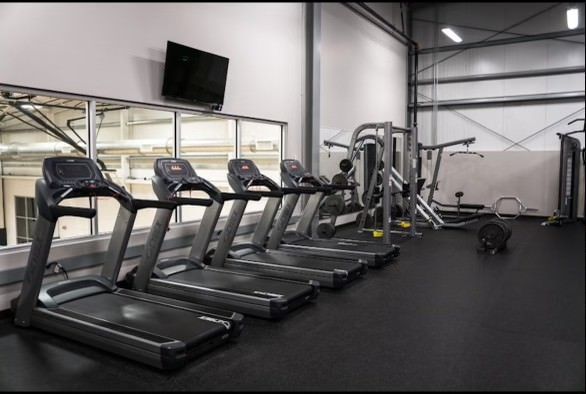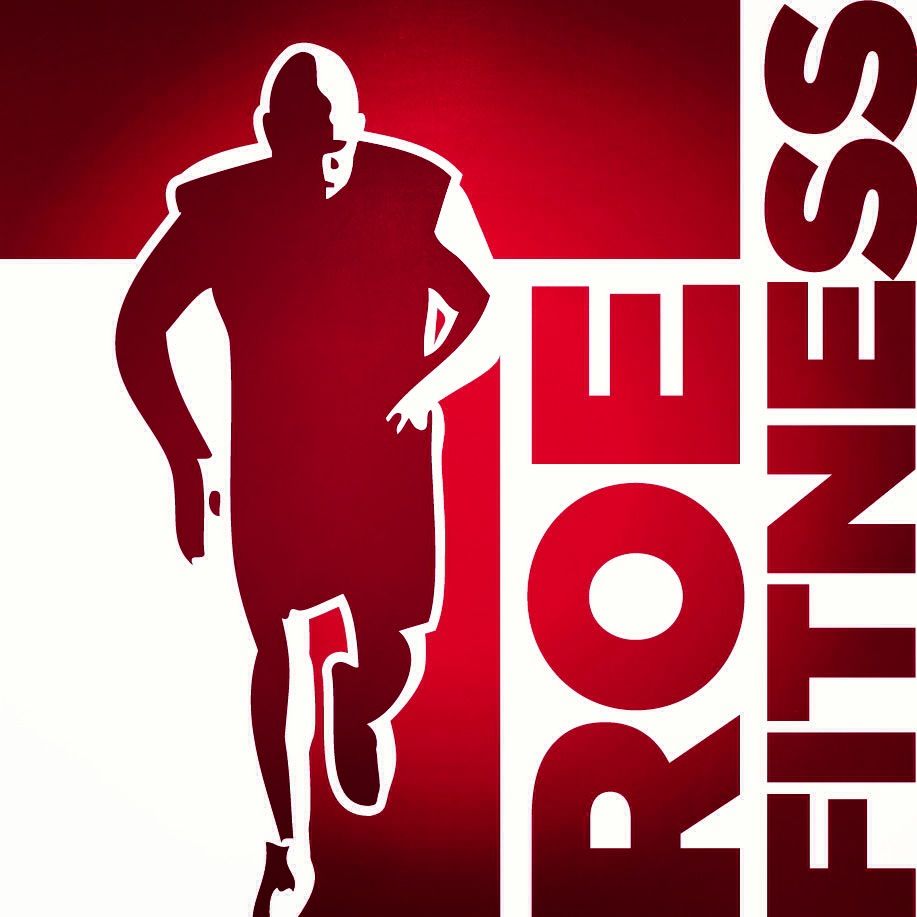By Thomas Roe
•
December 1, 2024
Relevance of Nutrition in Strength Training: Nutrition plays a pivotal role in strength training, serving as the foundation for muscle growth, repair, and overall performance. Adequate intake of essential nutrients such as proteins, carbohydrates, and healthy fats fuels workouts, aids recovery, and supports the body's adaptive processes. Proteins are crucial for repairing and building muscle tissues, while carbohydrates provide the necessary energy for intense training sessions. Healthy fats contribute to hormone production and joint health, further enhancing strength gains. Moreover, proper nutrition helps to maintain energy levels, prevent injuries, and optimize metabolic functions, making it an indispensable component of any effective strength training regimen. By aligning dietary habits with training goals, athletes can achieve improved performance, faster recovery, and sustained muscle development. Understanding the Role of Nutrition in Strength Training: Proper nutrition is a cornerstone of effective strength training, providing the necessary fuel and building blocks for muscle growth, repair, and overall performance. Essential nutrients such as proteins, carbohydrates, and fats play distinct yet interconnected roles in supporting these processes. Proteins, composed of amino acids, are vital for the repair and synthesis of muscle tissues. They enable muscles to recover from the microtears that occur during strength training exercises. Sources of high-quality proteins include lean meats, dairy products, legumes, and plant-based alternatives, ensuring a varied diet that meets the body’s demands for muscle repair and growth. Calories from macronutrients serve as the primary energy supply for both workouts and recovery phases. Carbohydrates are particularly important as they provide the quick energy needed for high-intensity training sessions. They replenish glycogen stores in the muscles, which are depleted during exercise, enabling sustained performance and endurance. Fats, especially healthy fats like omega-3 fatty acids, are essential for hormone production, joint health, and prolonged energy release. A balanced intake of these macronutrients ensures that the body has a steady and reliable energy source to support rigorous strength training routines. Nutrient timing and balanced meals are also critical components of an effective nutrition plan for strength training. Consuming the right nutrients at optimal times can significantly enhance performance and recovery. For example, eating a meal rich in carbohydrates and proteins before a workout can provide the necessary energy and amino acids needed during training. Post-workout nutrition, focusing on protein and carbohydrate intake, helps to replenish glycogen stores and repair muscle tissues more effectively. Balancing meals throughout the day with appropriate portions of proteins, carbohydrates, and fats ensures continuous energy supply, efficient muscle repair, and overall well-being. By paying close attention to what and when they eat, athletes can maximize their strength training results and maintain a healthy, active lifestyle. Macronutrients and Their Impact: Proteins: Proteins are fundamental for muscle repair and growth, playing a critical role in rebuilding muscle tissues that are broken down during strength training. Amino acids, the building blocks of proteins, are essential for this process. To optimize muscle repair and growth, it's recommended that individuals engaged in strength training consume about 1.2 to 2.0 grams of protein per kilogram of body weight per day, depending on the intensity of their training. Excellent sources of high-quality protein include lean meats, fish, eggs, dairy products, legumes, and plant-based alternatives like tofu and tempeh. Incorporating a variety of these protein-rich foods ensures a balanced intake of essential amino acids. Carbohydrates: Carbohydrates are the primary source of energy for the body, especially during high-intensity workouts. They are broken down into glucose, which fuels muscles and helps replenish glycogen stores depleted during exercise. For effective strength training, it's important to consume a mix of simple and complex carbohydrates. Simple carbs, such as fruits and dairy, provide quick energy, while complex carbs like whole grains, vegetables, and legumes offer sustained energy release. Timing is crucial; consuming carbs before a workout can boost performance, and post-workout carbs help in glycogen replenishment and recovery. Fats: Healthy fats are vital for hormone production, including testosterone and other hormones that play a significant role in muscle growth and recovery. They also support joint health and provide a long-lasting energy source. Including sources of healthy fats in the diet, such as avocados, nuts, seeds, olive oil, and fatty fish like salmon, can enhance overall health and performance. These fats help maintain cell integrity and support metabolic processes, making them an essential component of a balanced diet for strength training. Micronutrients and Their Role: Vitamins: Vitamins are critical for supporting muscle function and recovery, with Vitamin D and B-complex vitamins playing key roles. Vitamin D helps in calcium absorption, which is essential for muscle contraction and bone health. It also has anti-inflammatory properties that aid in recovery. B-complex vitamins, including B12 and folate, are vital for energy production and the synthesis of new cells, including muscle cells. They help convert food into energy, supporting the high energy demands of strength training and ensuring muscles receive the nutrients they need to grow and repair. Minerals: Minerals such as calcium, magnesium, and zinc are essential for strength training. Calcium is crucial for muscle contraction and bone strength. Magnesium aids in muscle relaxation and reduces the risk of cramps by supporting electrolyte balance. It also plays a role in protein synthesis and energy production. Zinc contributes to muscle repair and growth by supporting protein synthesis and boosting immune function. Adequate intake of these minerals ensures that the body functions optimally during intense physical activities and supports overall muscular health. Hydration: Staying hydrated is vital for muscle performance and recovery. Water is essential for maintaining blood volume, regulating body temperature, and ensuring that nutrients are effectively transported to muscles. During strength training, the body loses water through sweat, making it crucial to replenish fluids to prevent dehydration. Dehydration can lead to muscle fatigue, decreased coordination, and impaired performance. Proper hydration helps in maintaining muscle elasticity, reducing the risk of injuries, and aiding in recovery by flushing out toxins and supporting metabolic processes. Pre-Workout Nutrition: Fueling Up: Proper pre-workout nutrition is crucial for optimizing performance and ensuring that your body has the energy it needs to power through your training session. The focus should be on consuming a balanced combination of carbohydrates and proteins. Carbohydrates are your body's primary energy source and help to maintain blood glucose levels during exercise. Proteins, on the other hand, aid in muscle repair and growth. Some excellent pre-workout meals and snacks include a banana with peanut butter, oatmeal topped with berries and a sprinkle of chia seeds, Greek yogurt with honey and granola, or a whole-grain toast with avocado and a poached egg. These combinations provide a mix of quick and sustained energy release, ensuring you remain fueled throughout your workout. Timing: When it comes to pre-workout nutrition, timing is everything. Consuming your meal or snack too close to your workout can lead to discomfort, while eating too early might leave you feeling hungry and low on energy. Ideally, a substantial meal should be eaten about 2-3 hours before exercising. This meal can include a good balance of protein, carbohydrates, and fats. If you’re short on time, a smaller snack 30-60 minutes before your workout can suffice. This snack should be light and primarily composed of easily digestible carbohydrates and a small amount of protein to provide a quick energy boost without causing digestive issues. Drinking plenty of water is also essential to ensure you are well-hydrated before your workout begins. By understanding and implementing proper pre-workout nutrition strategies, you can enhance your performance, maintain energy levels, and improve your overall workout efficiency. Balancing your intake of carbohydrates and proteins, and timing your meals appropriately, will help you get the most out of your training sessions and support your strength training goals effectively. Post-Workout Nutrition: Recovery Essentials: Post-workout nutrition is essential for optimal recovery, muscle repair, and replenishment of glycogen stores depleted during exercise. After a strenuous workout, your muscles are in a state of repair and growth, requiring adequate nutrients to recover effectively. Consuming the right nutrients shortly after exercising can accelerate the recovery process, reduce muscle soreness, and prepare your body for future workouts. The primary goals of post-workout nutrition are to repair muscle fibers, replenish glycogen stores, and reduce muscle protein breakdown. By prioritizing recovery nutrition, athletes can enhance their performance and maintain consistent progress in their strength training routines. Protein and Carb Ratio: For effective post-workout recovery, it is important to focus on the ideal ratio of protein to carbohydrates. A common recommendation is a 3:1 or 4:1 ratio of carbohydrates to protein, which means for every gram of protein, you should consume three to four grams of carbohydrates. Carbohydrates play a crucial role in replenishing glycogen stores, while proteins provide the amino acids necessary for muscle repair and growth. Examples of balanced post-workout meals include a smoothie made with Greek yogurt, banana, and berries; a turkey sandwich on whole-grain bread with a side of fruit; or a bowl of quinoa salad with mixed vegetables and grilled chicken. These meals combine the necessary macronutrients to support recovery and promote muscle adaptation. Common Nutritional Mistakes and How to Avoid Them: Under-Eating: Not consuming enough calories is a common mistake, especially among those aiming to build strength and muscle. Insufficient calorie intake can lead to muscle loss, decreased energy levels, and impaired recovery. When the body doesn't get enough fuel, it starts breaking down muscle tissue for energy, counteracting the efforts put into strength training. To avoid this, it's essential to calculate your daily caloric needs based on your activity level, age, gender, and training intensity. Ensure you're consuming enough calories to support muscle growth and overall energy requirements. Including a variety of nutrient-dense foods in your diet can help meet these needs effectively. Over-Reliance on Supplements: While supplements can be convenient and beneficial in certain situations, relying too heavily on them can detract from the benefits of whole foods. Whole foods provide a complex array of nutrients, fiber, and phytochemicals that supplements can't fully replicate. They also offer better bioavailability and synergistic effects that aid in overall health and performance. It's important to focus on a balanced diet rich in fruits, vegetables, lean proteins, whole grains, and healthy fats. Supplements should be used to fill specific nutritional gaps, not as a primary source of nutrients. Inconsistent Eating Patterns: Irregular meal timings can significantly impact strength gains and overall performance. Skipping meals or having long gaps between eating can lead to energy dips, impaired muscle protein synthesis, and suboptimal recovery. Consistency in eating patterns helps maintain stable blood sugar levels and provides a steady supply of nutrients to the body. Aim to eat balanced meals every 3-4 hours, incorporating proteins, carbohydrates, and fats to sustain energy levels and support muscle recovery. Planning and preparing meals in advance can help maintain consistent eating habits, ensuring your body gets the necessary nutrients to fuel strength training and recovery. Case Studies and Success Stories: Athletes' Stories: Proper nutrition has significantly enhanced the strength training results for many athletes. For example, professional bodybuilder Phil Heath attributes much of his success to his meticulously planned diet. By focusing on high-protein meals with balanced carbohydrates and healthy fats, he has been able to maximize muscle growth and recovery. Another example is tennis star Serena Williams, who follows a plant-based diet rich in nutrient-dense foods. This approach has helped her maintain peak performance, recovery, and endurance throughout her career. These stories illustrate how personalized nutrition plans tailored to the needs of the athlete can lead to remarkable improvements in strength, performance, and overall health. Expert Opinions: Nutritionists and trainers emphasize the critical role of proper nutrition in strength training. Dr. John Berardi, a renowned sports nutritionist, advocates for a balanced intake of macronutrients and the importance of nutrient timing. He suggests that consuming a mix of proteins and carbohydrates both before and after workouts can significantly enhance muscle repair and growth. Similarly, strength coach Mike Boyle highlights the necessity of micronutrients, such as vitamins and minerals, in supporting overall training and recovery. According to Boyle, a well-rounded diet that includes a variety of nutrient-dense foods can help athletes maintain their energy levels, reduce the risk of injury, and improve overall performance. These case studies and expert opinions underscore the transformative impact of proper nutrition on strength training outcomes. By prioritizing a balanced diet, athletes can not only achieve their performance goals but also enhance their long-term health and well-being. Whether through personalized meal plans or expert guidance, the right nutritional strategies are essential for maximizing the benefits of strength training.











